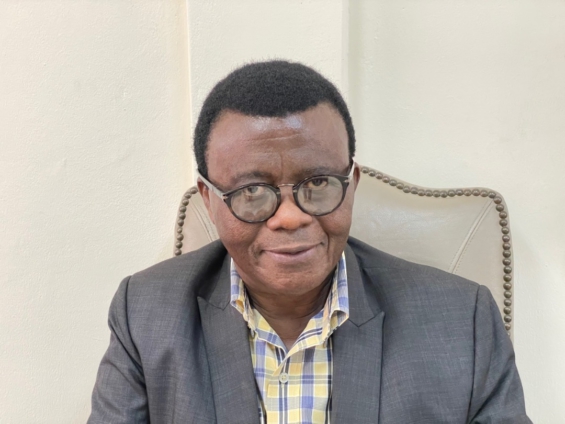Former UN Senior Governance Advisor Prof Baffour Agyemang-Duah has expressed shock that the government believed it could dismiss the concerns of organised labour.
He stated that underestimating the strength of the "sleeping giant in organised labour" was surprising, especially given the significant implications of tampering with the Social Security and National Insurance Trust (SSNIT) fund, which safeguards workers' futures.
“If organised labour wants to paralyse the whole country, they are in a position to do so. That was why I was surprised when they were defending that was undefendable and dragging their feet," he said. on Joy News PM Express on Monday.
Read Also: Organised Labour declares strike over NPRA’s approval for sale of SSNIT hotels
"SSNIT represents the future of all workers in the country because, by law, you are supposed to keep part of their salaries hoping that upon retirement, they may get some cushion to lay their head.
"So, if someone is playing with that kind of future, you can understand why workers will rise in unison to oppose it."
Prof. Agyemang-Duah also commented on SSNIT's plan to sell 60% of its stake in four hotels, either indicating that SSNIT did not present its case well or that there was a serious conflict of interest.
On Monday, July 15, organised labour suspended its strike, which began in protest against SSNIT's plan to sell 60% shares in four hotels to a private firm owned by the Food and Agriculture Minister, Bryan Acheampong.
Read more: Organised labour suspends strike; gives SSNIT one month to address concerns
This decision was announced by the Secretary General of the Trades Union Congress (TUC), Dr. Yaw Baah, at a news conference after an emergency meeting.
He said they are giving SSNIT one month to address all outstanding issues about pensions or "they will advise themselves."
Describing the breakdown in the relationship between organised labour and SSNIT as “bad news,” Prof. Agyemang-Duah said the Trust should not be seen defending a public official in the middle of wanting to buy state assets.
The head of the Kufuor Foundation noted that the government should have paid attention when organized labour began protesting the sale.
“In the 70s, labour paralyzed the military regime of the time. Between 1975 to 1977, there were lots of labour agitations, leading to internal changes within the government itself.
“Since then, we know that whenever labour begins to rumble over these matters, the government begins to have no options but to capitulate.
"Perhaps, lessons must be learnt from the Kenya peaceful demonstration which rolled into something else and forced the government to swallow its own bill and go beyond that to quickly drop the cabinet," he said.
Latest Stories
-
Asantehene receives more 19th century gold ornament and regalia
3 mins -
Hohoe Ghana Blind Union organises training for members ahead of Election 2024
10 mins -
Alan Kyerematen reveals his future plans for Ghanaian Health professionals
11 mins -
AAIN empowers women and small enterprises in Upper East Region through SHINE project
12 mins -
Akufo-Addo leads nationwide commissioning of 80 educational projects
18 mins -
Ghana and Seychelles strengthen bilateral ties with focus on key sectors
49 mins -
National Elections Security Taskforce meets political party heads ahead of December elections
52 mins -
Samsung’s AI-powered innovations honored by Consumer Technology Association
1 hour -
Fugitive Zambian MP arrested in Zimbabwe – minister
2 hours -
Town council in Canada at standstill over refusal to take King’s oath
2 hours -
Trump picks Pam Bondi as attorney general after Matt Gaetz withdraws
2 hours -
Providing quality seeds to farmers is first step towards achieving food security in Ghana
2 hours -
Thousands of PayPal customers report brief outage
2 hours -
Gary Gensler to leave role as SEC chairman
2 hours -
Contraceptive pills recalled in South Africa after mix-up
3 hours

